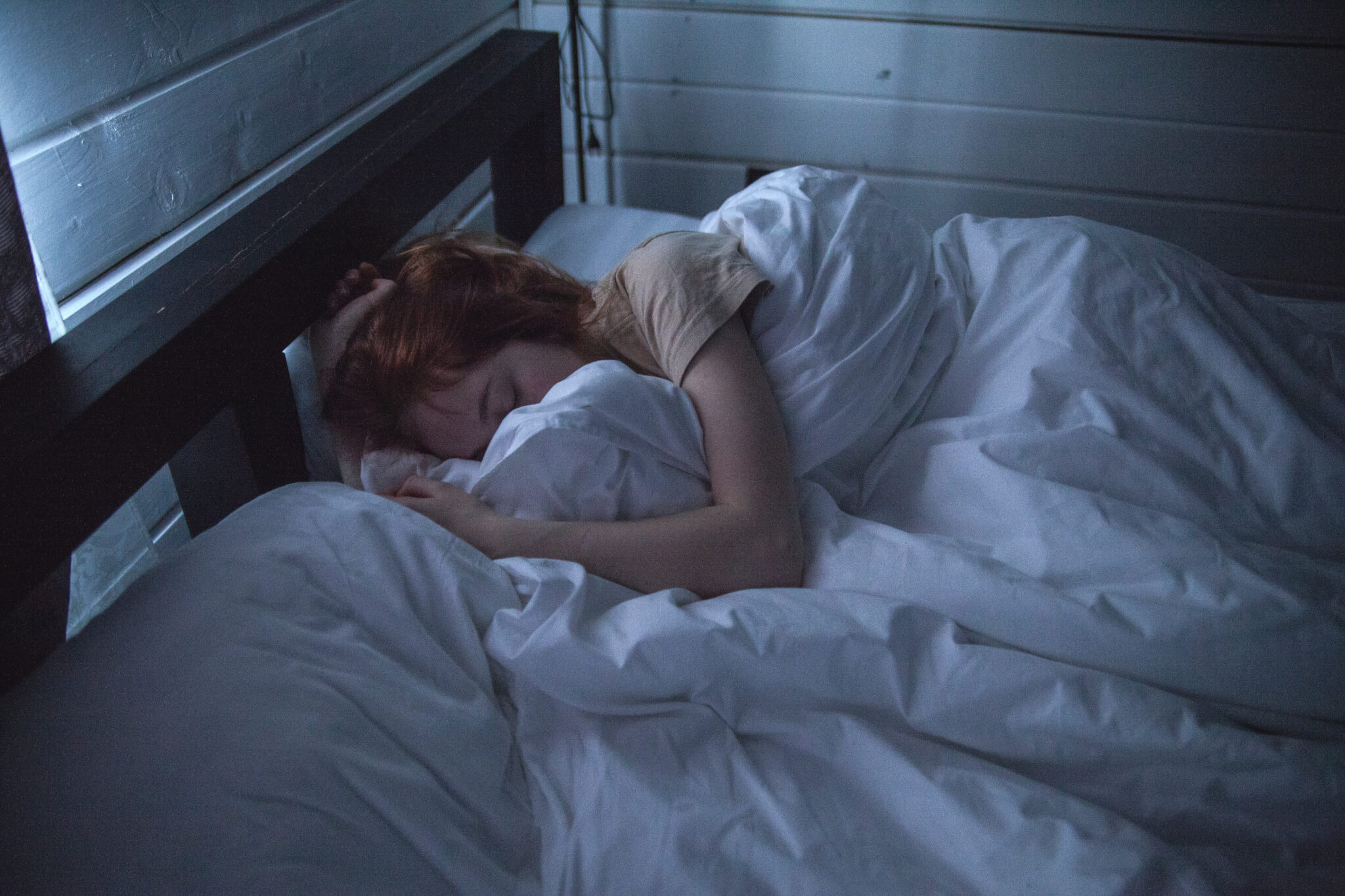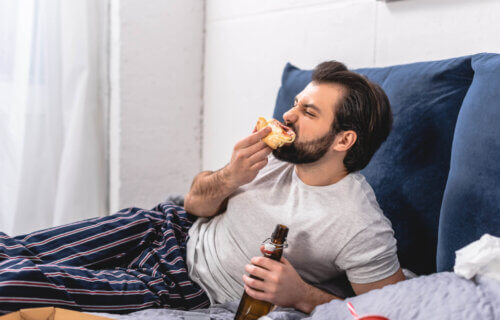UPPSALA, Sweden — Candy bars and bags of chips could leave you tossing and turning all night, according to researchers from Uppsala University. Study authors had a group of generally healthy people follow either a nutritious or poor diet in random order. Sure enough, when people followed an unhealthy diet, they saw their ability to reach deep sleep deteriorate.
Numerous earlier epidemiological studies have shown that what we eat has a connection to changes in both sleep patterns and quality. However, few projects have investigated how diet directly affects sleep. One way to conduct such a study would be to have the same participants consume different diets in a randomized order.
“Both poor diet and poor sleep increase the risk of several public health conditions. As what we eat is so important for our health, we thought it would be interesting to investigate whether some of the health effects of different diets could involve changes to our sleep. In this context, so-called intervention studies have so far been lacking; studies designed to allow the mechanistic effect of different diets on sleep to be isolated,” says Dr. Jonathan Cedernaes, a physician and associate professor in Medical Cell Biology at Uppsala University, in a media release.
More specifically, earlier studies have found that diets high in sugar tend to have an association with poorer sleep. Yet, Dr. Cedernaes notes sleep is an interplay of different physiological states.
“For example, deep sleep can be affected by what we eat. But no study had previously investigated what happens if we consume an unhealthy diet and then compared it to quality of sleep after that same person follows a healthy diet. What is exciting in this context is that sleep is very dynamic. Our sleep consists of different stages with different functions, such as deep sleep which regulates hormonal release, for example,” Dr. Cedernaes explains.
“Furthermore, each sleep stage is hallmarked by different types of electrical activity in the brain. This regulates aspects such as how restorative sleep is, and differs across different brain regions. But the depth or integrity of the sleep stages can also be negatively affected by factors such as insomnia and aging. Previously, it has not been investigated whether similar changes in our sleep stages can occur after exposure to different diets.”

Each study session included several days of monitoring in a sleep lab. In all, 15 healthy normal-weight young men took part in two sessions. First, researchers screened the participants for factors including sleep habits, which had to be normal and within the recommended range (an average of seven to nine hours of sleep nightly).
Then, in a randomized manner, the group consumed both a healthier diet and a poor diet. The two diets actually featured the exact same number of calories, adjusted to each individual’s daily needs. Among other factors, the poor diet contained more sugar, saturated fat, and processed food items. Meals for each diet had to be consumed at individually adjusted times, matched across both dietary conditions. The men followed each diet for a week, with the team monitoring their sleep, activity, and meal schedules at an individual level.
After finishing each diet, study authors assessed each participant in a sleep lab. During this phase, they were first allowed to sleep a normal night, all while their brain activity was measured to monitor their sleep. Then, researchers kept the group awake in the sleep lab before eventually permitting them to catch up on sleep (which was also recorded).
“What we saw was that the participants slept for the same amount of time when they consumed the two diets. This was the case both while they were following the diets, as well as after they had switched to another, identical diet. In addition, across the two diets, the participants spent the same amount of time in the different sleep stages. But we were particularly interested in investigating the properties of their deep sleep. Specifically, we looked at slow-wave activity, a measure that can reflect how restorative deep sleep is,” Dr. Cedernaes explains.
“Intriguingly, we saw that deep sleep exhibited less slow-wave activity when the participants had eaten junk food, compared with consumption of healthier food. This effect also lasted into a second night, once we had switched the participants to an identical diet. Essentially, the unhealthy diet resulted in shallower deep sleep. Of note, similar changes in sleep occur with aging and in conditions such as insomnia. It can be hypothesized, from a sleep perspective, that greater importance should potentially be attached to diet in such conditions.”

Currently, study authors can’t say how long the sleep effects of an unhealthier diet may last. For instance, this project did not focus on whether the shallower deep sleep may alter functions that are regulated by deep sleep.
“It would also be interesting to conduct functional tests, for example to see whether memory function can be affected. This is regulated to a large extent by sleep. And it would be equally interesting to understand how long-lasting the observed effects may be. Currently, we do not know which substances in the unhealthier diet worsened the depth of deep sleep. As in our case, unhealthy diets often contain both higher proportions of saturated fat and sugar and a lower proportion of dietary fiber,” Dr. Cedernaes concludes.
“It would be interesting to investigate whether there is a particular molecular factor that plays a greater role. Our dietary intervention was also quite short, and both the sugar and fat content could have been higher. It is possible that an even unhealthier diet would have had more pronounced effects on sleep.”
The study is published in the journal Obesity.
You might also be interested in:
- Best Ways To Improve Sleep: Top 5 Practices For Optimal Rest, According To Experts
- Junk food ‘brainwashes’ you so that you’re wired to eat more and more
- Nighttime snacking promotes vicious cycle of sleeplessness, weight gain, junk food cravings
- For the best sleep, survey finds you should get to bed by 9:39 p.m.


Uuuuuhhhhhh…no shit.